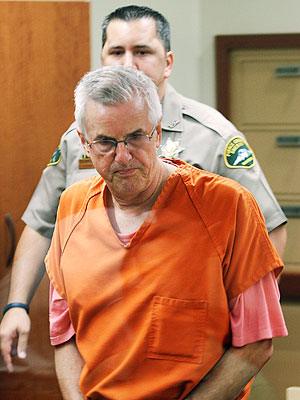
Tara Todras-Whitehill for The New York Times
Protesters against President Mohamed Morsi next to a destroyed barricade near the presidential palace in Cairo on Saturday. More Photos »
CAIRO — Struggling to quell violent protests that have threatened to derail a referendum on an Islamist-backed draft constitution, President Mohamed Morsi of Egypt moved Saturday to appease his opponents with a package of concessions hours after state news media reported that he was moving toward imposing a form of martial law to secure the streets and allow the vote.
Mr. Morsi did not budge on a critical demand of the opposition: that he postpone the referendum set for next Saturday to allow a thorough overhaul of the proposed charter, which liberal groups say has inadequate protection of individual rights and provisions that could someday give Muslim religious authorities new influence.
But in a midnight news conference, his prime minister said Mr. Morsi was offering concessions that he had appeared to dismiss out of hand a few days before. The president rescinded most of his sweeping Nov. 22 decree that temporarily elevated his decisions above judicial review and drew tens of thousands of protesters into the streets calling for his downfall. He also offered a convoluted arrangement for the factions to negotiate constitutional amendments this week that would be added to the charter after the vote.
Taken together, the announcements, rolled out over a confusing day, appeared to indicate the president’s determination to do whatever it takes to get to the referendum, which his Islamist supporters say will lay the foundation of a new democracy and a return to stability.
Amid growing concerns among his advisers that the Interior Ministry might be unable to secure either the polls or the institutions of government in the face of renewed violent protests, the state media reported early Saturday that he would soon order the armed forces to keep order and authorize its solders to arrest civilians.
In recent days, mobs have attacked more than two dozen Muslim Brotherhood offices and ransacked the group’s headquarters, and more than seven people have died in street fighting between Islamists and their opponents.
As of early Sunday, Mr. Morsi had not yet formally issued an order calling out the military, raising the possibility that the announcement was intended as a warning to tell his opponents their protests would not derail the vote.
The moves on Saturday offered little hope of fully resolving the standoff, in part because opposition leaders had ruled out — even before his concessions were announced — any rushed attempt at a compromise just days before the referendum.
“No mind would accept dialogue at gunpoint,” said Mohamed Abu El Ghar, an opposition leader, alluding to previously floated ideas about last-minute talks for constitutional amendments.
Nor did Mr. Morsi’s Islamist allies expect his proposals to succeed. Many said they had concluded that much of the secular opposition was primarily interested in obstructing the transition to democracy at all costs, to try to block the Islamists from winning elections. Instead, some of the president’s supporters privately relished the bind they believed Mr. Morsi had built for the opposition by giving in to some demands, forcing their secular opponents to admit they are afraid to take their case to the ballot box.
For now, the military appears to back Mr. Morsi. Soon after the state newspaper Al Ahram suggested the president would impose martial law, a military spokesman read a statement over state television that echoed Mr. Morsi’s own speeches.
The military “realizes its national responsibility for maintaining the supreme interests of the nation and securing and protecting the vital targets, public institutions and the interests of the innocent citizens,” the spokesman said, warning of “divisions that threaten the State of Egypt.”
“Dialogue is the best and sole way to reach consensus that achieves the interests of the nation and the citizens,” he added. “Anything other than that puts us in a dark tunnel with drastic consequences, which is something that we will not allow.”
If Mr. Morsi goes through with the plan, it would represent a historic role reversal. For six decades, Egypt’s military-backed authoritarian presidents used martial law to hold on to power and to jail Islamists like Mr. Morsi, a former leader of the Muslim Brotherhood. It would also come just four months after he managed to pry power out of the hands of the country’s top generals, who had seized control when Hosni Mubarak was ousted last year and then held on to it for three months after Mr. Morsi’s election.












